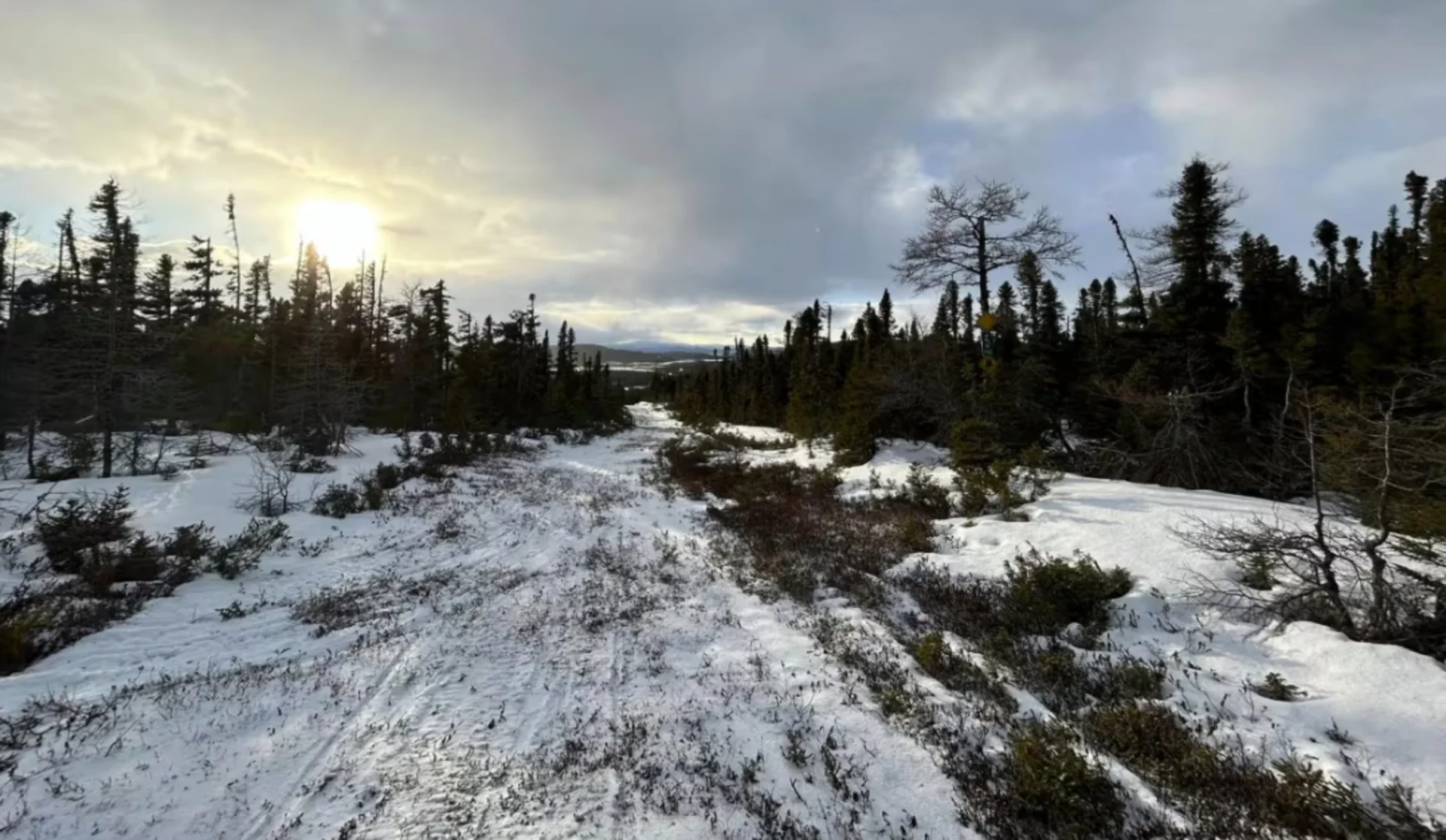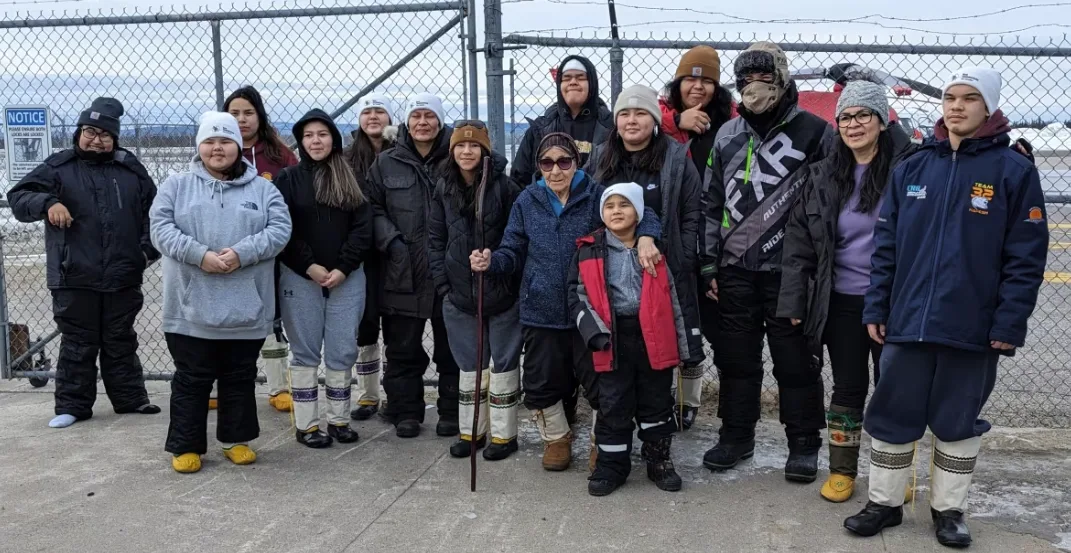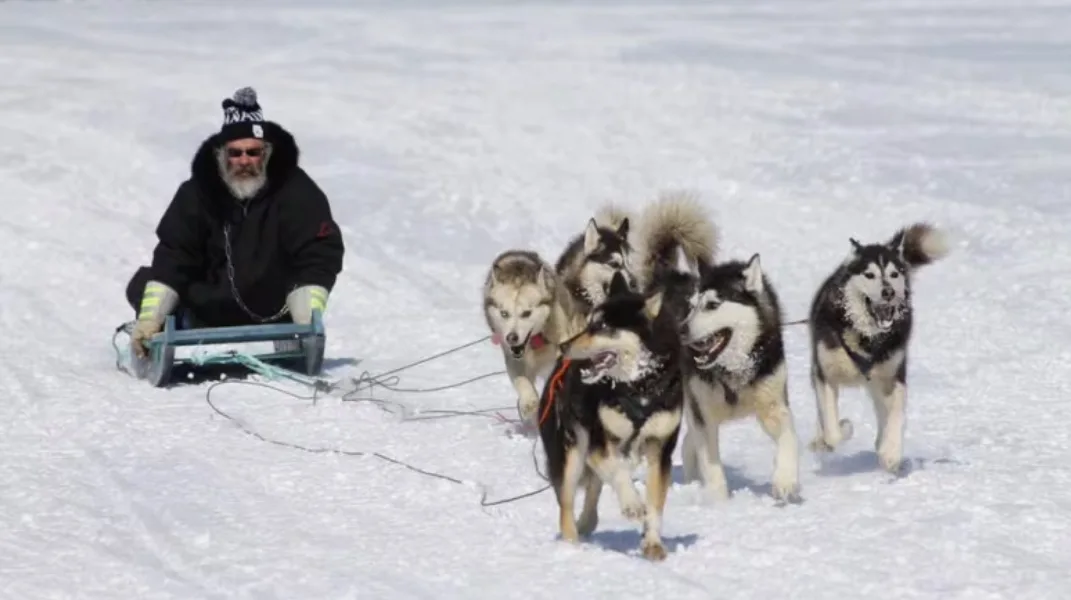
Labrador winter warmer than average as Indigenous communities struggle to adapt
A lack of snow and ice in Labrador is forcing Indigenous communities to adapt their cultural practices to a changing climate.
"Northern people certainly are on the frontline of climate change," said Bill Merryfield, a research scientist with Environment and Climate Change Canada.
The temperature this winter in Labrador overall was 5 C above normal, with some days in December and February that were 15 to 20 degrees warmer than usual when compared to the 30-year average, Merryfield said.
The winter has been unlike any one elder has seen before.
"It's frightening," said Tshaukuesh Elizabeth Penashue, with her daughter Kanani Davis translating. "Previous years, it was never like this."
At the end of February, a group of Innu students were set to join her for her walk from the Mealy Mountains to Sheshatshiu, a trip Penashue has done many times before. The trip was cancelled two days before students were set to leave due to warming temperatures and a lack of ice making it unsafe.
RELATED: How global warming is reshaping winter life in Canada
Penashue said from growing up to now being an elder, she's never seen a spring this early with such little snow.
Mamu Tshishkutamashutau Innu Education, which organized the trip, pivoted and took students out by helicopter to the Innu base at Park Lake to spend a week in one location out on the land.
"I've been waiting for this so long to take a group of students out on the land," Penashue said. "It's so beautiful and it's just so calming and peaceful to be out on the land."
They may need to look at taking students into the country earlier, yet there was not much snow around December either, Penashue said. There will be much to look at to ensure Innu language and culture is preserved, she added.

Thirteen young people, along with Innu workers and elders, were taken by helicopter on March 5 to Park Lake to experience life on the land. (Heidi Atter/CBC)
Dog sled races called off
In Port Hope Simpson, the Eric Rumbolt Memorial Dog Sled Race has been held in April for decades. But as snow conditions change, so too has the date — recently, it's been held in March instead.
This year, the race was planned for March 2, but had to be cancelled due to a lack of snow.
"It's pretty depressing, I tell you. It's like the middle of summer here. No snow," said one of the organizers, Dennis Burden. "You can't really do much outside anymore."
Burden had spent about 30 hours grooming the race trail on Alexis Bay, but a series of warm days melted the snow quickly. Dogs are unable to run on sheets of ice as it can cut their paws and it's too slippery for snowmobiles, he said.
SEE ALSO: World's globetrotting animals at risk due to habitat loss, climate change
Races have also been cancelled in Rigolet. It's not the first time the Port Hope Simpson race has been called off, as there have been other March months without much snow, but this year is extreme, Burden said.
In Labrador, winter is supposed to be the time to be out on the land. When there's snow and ice, it's paradise, Burden says.
But the seasons lately are short, running from December to February, rather than stretching from November to April.

Dennis Burden won't be racing his dogs this year in Port Hope Simpson after the Eric Rumbolt Memorial Dog Sled Race was cancelled due to a lack of snow in the region. (Shelley Russell Pye/Facebook)
"We live for winters especially," Burden said. "This is our life. Our life dies if we don't have snow."
It's sad to think about his granddaughters not experiencing the winter traditions of their culture, Burden said.
"One time you'd call it a freak year, but this is the normal almost now," he said. "I can't bear the thought of being here in winter without snow."
There are other factors alongside climate change that are affecting Labrador this winter, Merryfield said. Atmospheric pressure in the North Atlantic changes on a cycle, bringing different temperatures to Iceland and Labrador.
This year, the low pressure part is hovering over Iceland, bringing cooler temperatures there, while the high pressure in the Atlantic region is bringing warmer temperatures here, Merryfield said.
"And I think the researchers are going to have to sort of look very carefully at what might else be going on because certainly this past year, 2023, and the first months into 2024 have been really extraordinary globally," Merryfield said.
Globally, temperatures were warmer than average when compared to data going back to the 1800s.
DON'T MISS: Scientists understood physics of climate change in the 1800s–thanks to one woman
"What is considered normal tends to be a moving target as the climate warms overall," Merryfield said.
In Happy Valley-Goose Bay at the end of February, there was a bit more than a quarter of the amount of snow on the ground than average, meaning about 75 per cent less snow than would be typical, Merryfield said. This spring and summer are both expected to be warmer than usual after the mild winter.
"It could be sort of a degree above past average conditions, you know, going back 30 years. Or it could be literally off the charts," he said.
The unit is working to provide more specific information to help people prepare, Merryfield said.
Thumbnail image courtesy of Morgan Elson/Facebook via CBC News.
This article, written by Heidi Atter, was originally published for CBC News.






